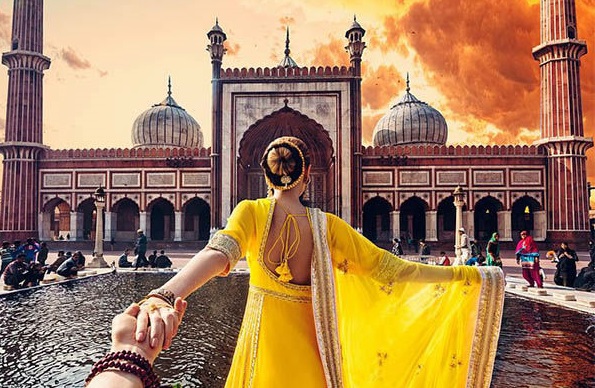Can religious Muslims choose to wait for love or must they settle down with the most practical match? We all grapple with this question, especially if we hit our late 20s and have not yet married. What is it that I really want? We all desire both love and marriage, but as time goes by, we begin to wonder if we should replace the idealistic “and” with a more cynical “or.” Here is a typical situation:
Hannah has been meticulously, excitedly planning the details of her wedding day since she was seventeen. When she becomes a college student, she meets half a dozen potential suitors, some in class, some through the Muslim Student Association at her university, and some through family. None of these matches materialize into marriage, and Hannah, while a bit letdown, is fine with this. She is, after all, only 22 and remains hopeful.
She graduates and begins working, all the while taking evening classes to earn her Master’s degree. Her schedule is hectic, but she manages to make it to a few mosque dinners and ISNA (Islamic Society of North America) conferences where she has a chance to mingle with other young Muslims, many of whom are also searching for a soulmate. No luck. Now and again, she speaks to a past suitor, but nothing comes of it. Before she knows it, Hannah is 24, has graduated with a Master’s degree, but without so much as a proposal. Now the early kernels of doubt and anxiety begin to percolate.
She joins an online dating website, hesitant but hopeful that this form of new millennium matchmaking will prove fruitful. She also begins to supplicate daily and ardently that Allah bring her together with the kind of pious, educated, kind and attractive man she envisions for herself–after all, prayer is the weapon of the believer, right? That year she meets a handful of suitors, each has his shortcomings, but all are decent. Still, none of them are the husband she imagines for herself.
In the meantime, she also closes her account on the matrimonial website because of the steady stream of indecent proposals and lewd comments. She no longer attends Muslim conferences, because the lack of success coupled with the awkward, stilted introductions and conversations at these events, is just too discouraging. Hannah is 27 now, a young woman by all standards, except the one that judges Muslim women as potential wives; by that measure, her age is a liability. Hannah’s anxiety deepens and is now tinged with a bit of depression.
Around this time, Hannah’s father comes to her with the news that a man, one who had reached out before, has approached him again. This time he is earning a higher salary and even owns a townhouse. Hannah remembers this suitor; she also remembers there was nothing remarkable about him. He was a nice, polite guy, although a bit shy. Hannah prefers tall, dark skinned men, but he has a light brown complexion and stands no taller than her. She doesn’t feel a strong attraction and she certainly is not in love with him, but everything about him points to a decent, upstanding man. And here comes the choice: love or marriage?
Hannah can ignore her age, reject this man and continue her search for love and marriage. Or, she can ignore her expectations about love, consider her age and accept this man’s proposal. What do you choose?
In reality, of course, our path in life is determined by Allah; we simply make the best decisions we can we based on our limited life experience and our myopic vision of the future. Still, those decisions have to be made. And Hannah is facing one that many Muslim women can identify with.
Hannah has to consider multiple angles. First there is age. Hannah has already learned that the older you become, the less desirable society deems you for marriage. No, it is neither Islamic nor fair. Yes, it should change, but for now, this is her unfortunate reality. Rather than view a woman in her 30s as more educated and financially secure than her younger counterpart, men, and oftentimes women, judge her as inflexible, picky, career-oriented and difficult. And of course when a woman reaches her mid-30s, she might have her life together and ready for marriage, but the men interested in her are in their 40 or even 50s and don’t exactly fit the criteria for her ideal mate.
Then there is fertility. It is a rude and unpalatable, but nonetheless a very real fact that as women grow older, we are less likely to have healthy children and have them safely and easily. At 27, Hannah has at least seven or eight years before her biology becomes an impediment, but who is to say that if she rejects this proposal, she will find love and marriage by her mid-30s? She could certainly marry later in life and choose to adopt or remain childless. The desire to have one’s own children should not be the sole reason for running into a marriage, but it is a real and strong impulse that we can’t entirely ignore.
And finally, Hannah wonders if the ideal husband she envisions simply may not come into her life. It is a frightening but honest possibility. She wonders if she is willing to spend years of your life looking for love in the form of the perfect man she dreamed up–a man who may never arrive. She could abandon that notion, and take a more cynical, pragmatic view, but if she does, will she regret giving up on her dream, her dua—a dream she has every right to hold on to.
To complicate matters further, Hannah also knows that if she accepts this man’s proposal, once they begin to live together, her blasé feelings for him might slowly transform into love. So what started as choosing marriage over love might yield marriage and love. But there is no way of knowing if that blossoming will occur. She and this man might simply have a kind, respectful marriage, but one devoid of passion and romance.
Hannah represents many Muslim women today, going through the difficulty of balancing their desire for love, marriage and the myriad of options that modernity allows. We live in a world full of choices and every decision holds with it a consequence. What do you value? What do you want most? And what sacrifices are you willing to make to achieve your goals? It is no one’s place to tell women that they should settle for Mr. Ok but it would be irresponsible to ignore the downsides of searching for Mr.Perfect. Whichever path you choose do so with open eyes and with your trust completely in Allah’s plan.
[separator type=”thin”]
Nuriddeen Knight is a writer and teacher. Her first published book is “The 40 Hadith of ‘Aisha.” You can find her blogging at bythefigandtheolive.com
Photo Credit: Murad Osmann






Excellent insights on an issue that should be highlighted more.